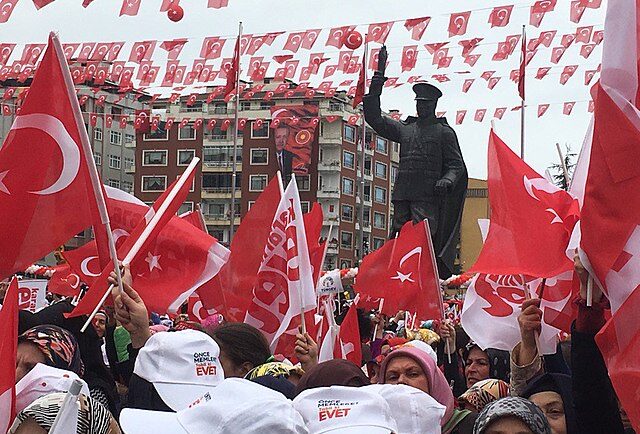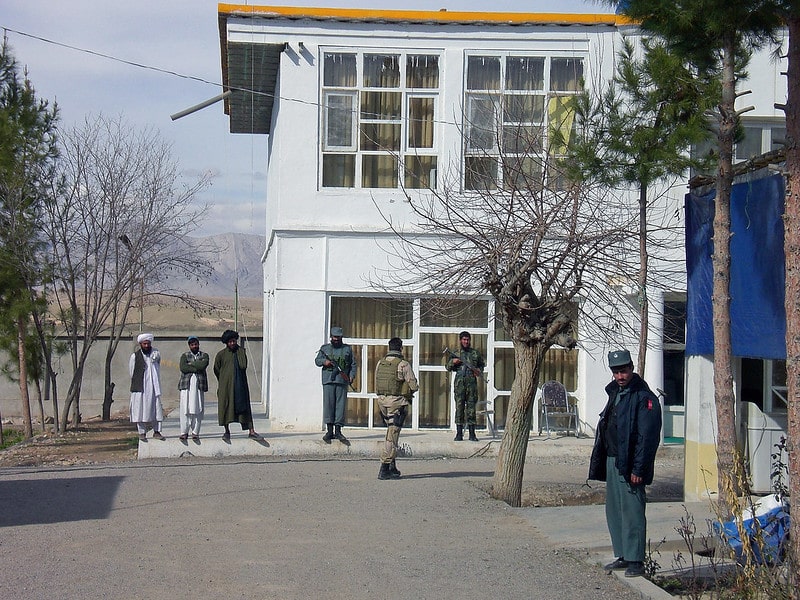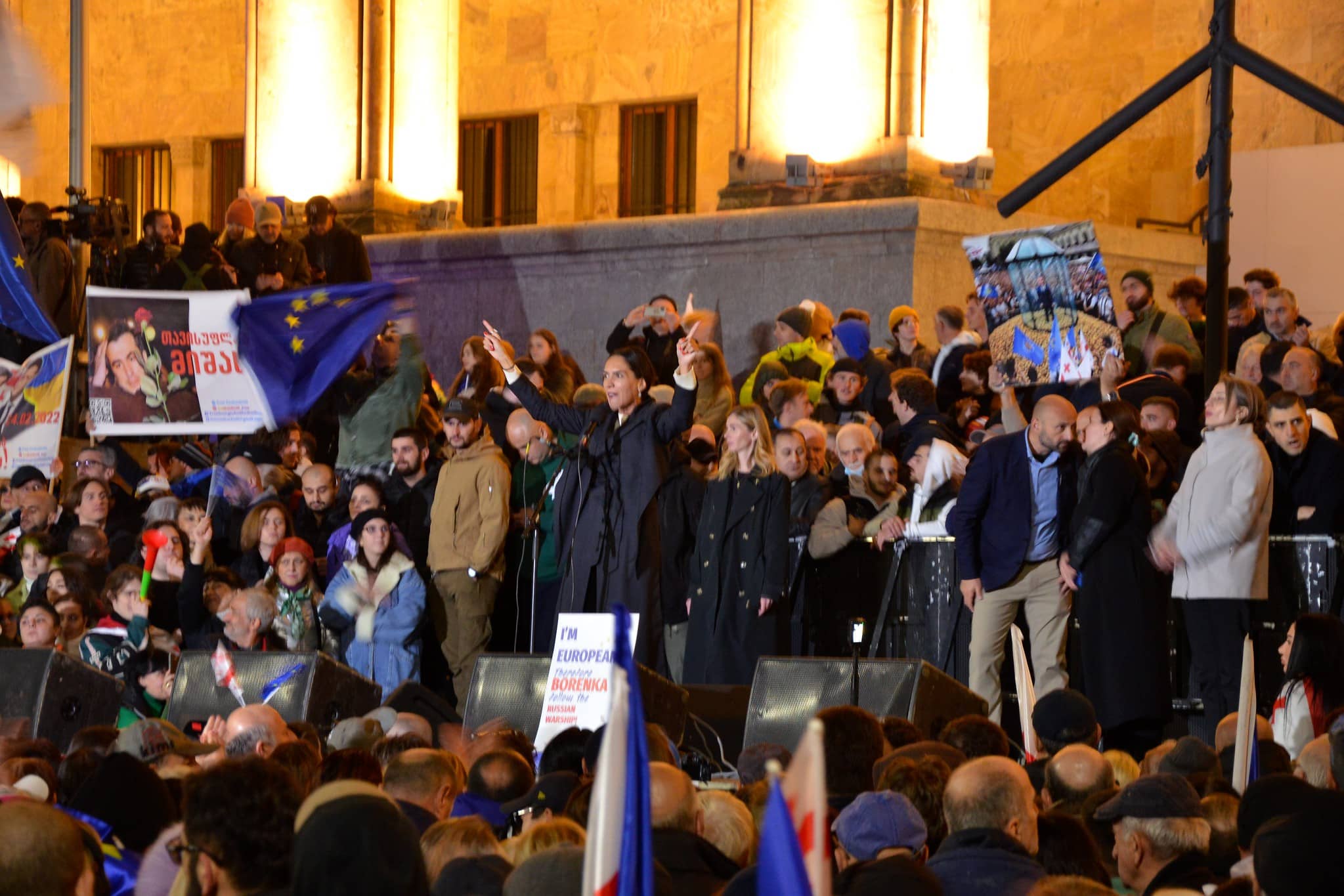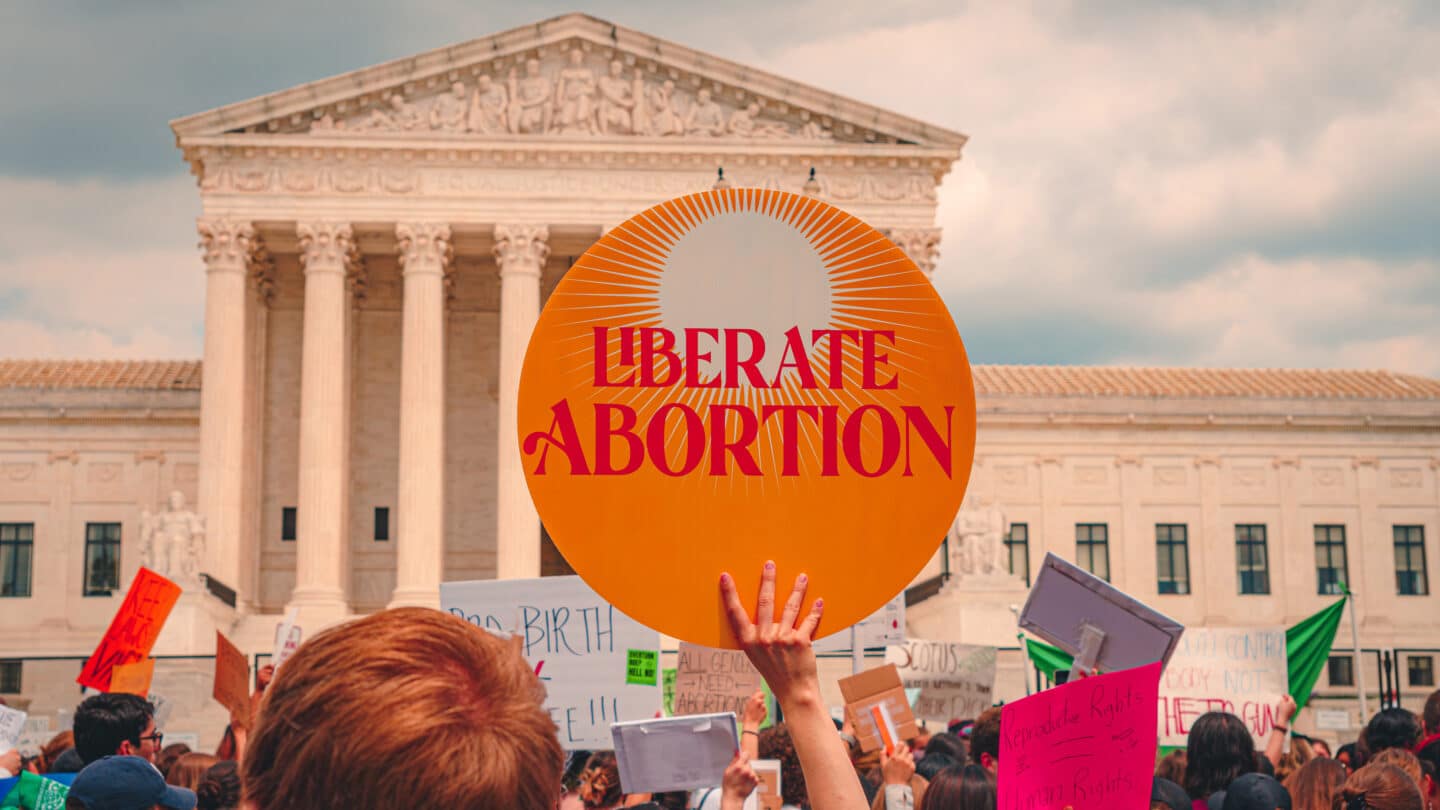Photo: Statue of Atatürk looks down on a meeting of Erdogan -. Wikimedia Commons
Last week marked Turkey's 100th birthday. On 29 October 1923, national hero Mustafa Kemal Atatürk founded the Republic of Turkey, a secular state built on the ruins of the Ottoman Empire. However, the celebrations have been scaled down, leading many to believe that President Erdogan is actively downplaying Atatürk's secular legacy, and thus the foundations of his country, to prioritise his own political agenda.
A new modern state
The Ottoman Empire was on the losing side of WWI and collapsed. Atatürk was known for his military achievements during the Turkish War of Independence thereafter, keeping out the victorious European powers. Atatürk attributes the fall of the empire partly to its religious foundation. Secularisation - the separation of religion and state - was at the heart of Atatürk's ideology and one of the key components of Turkey's Western-oriented modernisation. The republic ended the caliphate, women were allowed to vote, headscarves were banned in schools and public institutions, alcohol was no longer prohibited and the Arabic script was replaced by the Roman alphabet. "Ataturk was a top-down politician who believed in social engineering and he wanted to transform Turkey into a secular, Western, European society", says Soner Cagaptay, Turkey expert at the Washington Institute. Religion was separated from public life for the sake of modernisation and development, ending the nation's Islamic norms. Not all Turks were fond of the secular state and a split emerged within Turkey's society between secularists and conservatives. Islamists were not big fans of Atatürk and blamed him for neglecting the Ottoman heritage of the Turkish people. The result of the last election is a reminder of the deep polarisation within Turkish society between Islamists and secularists.
A land of coups
As Turkey is officially a secular state, pro-Islamic parties have traditionally been allowed to not participating in politics. If a party promotes religious values or is somehow affiliated with religion, the Turkish military intervenes by removing the party from the political scene and deposing it. This is why parties claim to be secular until they take power and start implementing policies inspired by Islam. The Constitutional Court has banned several political parties with too much Islamic orientation because they undermine the country's secular base. The military is the protector of the constitution and intervenes to restore constitutional order when it comes under pressure. This has happened regularly in Turkish history. There are military coups in 1960, 1971, 1980, 1997 and most recently there was a failed attempt in 2016.
Erdogan and the AKP
Erdogan's religiously conservative AK (Justice and Development) Party came to power in 2002. Its predecessor was banned by the constitutional court because of its "anti-secular activities". Both Erdogan and the party are experiencing a growing Muslim identity. They claim that Muslims are marginalised by the country's secular laws. In recent years, Erdogan has profiled himself as an Islamist - someone who believes the state should be ruled along the lines of Islam. Erdogan strives for a Important role for Islam in education and public policy. By emphasising the country's Islamic heritage at the expense of secular history, Erdogan appeals to a large part of the electorate that has been voting for him for more than 20 years. You would think that the AKP would also be pushed out of the saddle by the military for being too religious. The 2016 coup failed however, due to growing anti-secular sentiment in Turkish society.
Geographical intersection
Turkish diplomacy has been Western-oriented throughout the 20th century. Turkey joined NATO in 1952 and gained EU candidate status in 1999. Since Erdogan and his party have ruled the country, Turkey's foreign policy is no longer solely focused on the West and seeks closer ties with Middle Eastern countries. The Arab principles that formed the basis of the Ottoman Empire have not completely disappeared among the Turkish people and have been revalued under Erdogan. Turkey has realised that its unique geographical location in the world can give it regional power. Turkey exploits its geostrategic position by making friends in all directions and presenting itself as an intermediary that can mediate regional conflicts. Turkey's foreign policy aims to restore the country's prominent role in the Middle East giving. It supports Arab countries instead of Israel, is militarily active in Iraq and Syria and has built its own defence industry, increasing its autonomy. Moreover, talks on EU accession have stalled since 2016 due to the country's deteriorating human rights situation and democratic decline, making a future in the EU almost impossible. Atatürk's Western-oriented, non-Islamic ideology has come under pressure and partly reversed over the past two decades due to these developments.
"The century of Turkey"
Erdogan shares similarities with Atatürk as a top-down politician who believes in social engineering. His values, however, are quite the opposite of what Atatürk observed. Some Atatürk's anti-Islamic policies reversed by Erdogan, such as restricting the sale of alcohol, restoring the headscarf for women and turning the Hagia Sofia back into a functioning mosque. Erdogan claims that the next century will be "Turkey's century"; he sets out a roadmap to strengthen the country's position on the world stage. It seems Erdogan wants to usurp Atatürk's throne as the country's most honoured leader and go down in history as Turkey's most revered statesman in the second century - a century that will make Turkey a major regional power again.
Since Turkey switched from a parliamentary to a presidential system - as a result of a 2017 referendum - the system of checks and balances has deteriorated and the country is ruled authoritatively by Erdogan. The president and about half of the country share Islamist values and feel that the country's secular foundations are inconsistent with its history and values. What is worrying is that Erdogan is using this anti-secular agenda to further strengthen his authoritarian rule over the country. While Erdogan is undoubtedly an authoritarian leader who undermines his country's democratic principles, the country's regional power and potential role as a mediator in many conflicts still make it an important ally of the EU, despite the fact that the country's values are no longer aligned with those of the EU and accession seems to be something of the past. This does not diminish the need for the EU to speak out against the worrying democratic state and rule of law situation, but it must realise that a strained relationship with Turkey only complicates the EU's position in the world.





